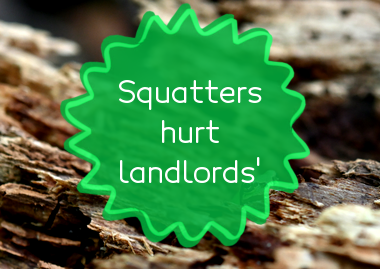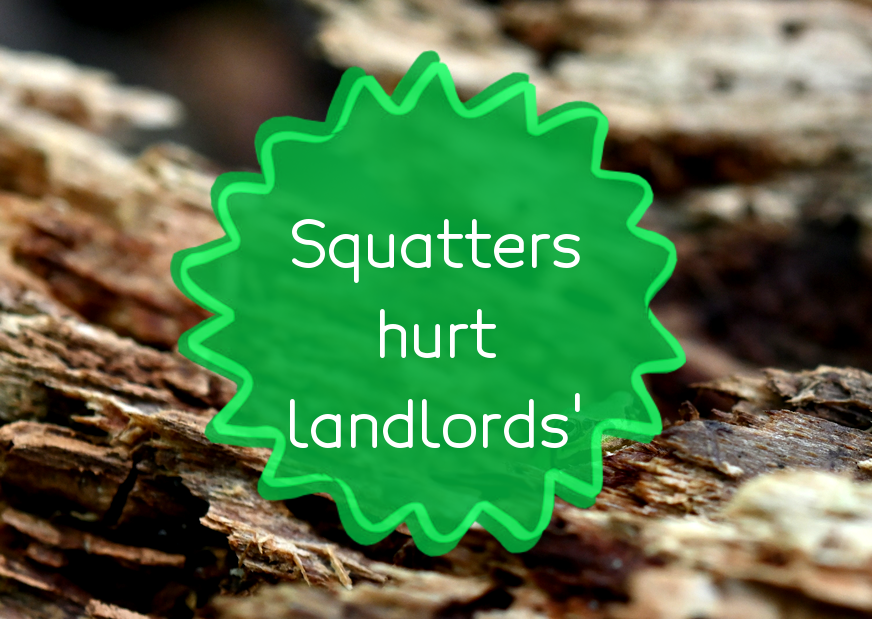Squatters' rights, also known as adverse possession laws, is a legal concept that allows a person to claim ownership of land or property that is not legally theirs by occupying it for a certain period of time. This legal concept can negatively impact landlords in different ways:
- 1. Loss of Property Ownership: If a squatter successfully claims ownership of a property through adverse possession, the landlord can lose their legal claim to the property.
- 2. Financial Loss: Landlords can face financial losses when they have to spend time and money on legal battles to evict a squatter and regain control of their property.
- 3. Delayed Revenues: Squatters can occupy a property for an extended period, leading to delayed rent payments, loss of rental income, and the inability to lease the property to new tenants.
- 4. Difficulty in Selling the Property: A property occupied by a squatter can be challenging to sell as it diminishes the property's value and dampens potential buyer interest.
- 5. Liability Issues: Landlords are responsible for ensuring the safety and wellbeing of tenants on their property. In the case of a squatter occupying the property, landlords may be held liable for any injuries or damage caused by the squatter.
In conclusion, landlords need to be aware of the adverse possession laws in their state to take appropriate measures to protect their properties' legal ownership and prevent squatters from occupying their land.
What is a squatter?
A squatter is a person who unlawfully occupies an uninhabited or abandoned property without the permission of the owner or rightful occupant. They may take up residence in a building, land, or any other type of real estate and may claim to have some form of right to be there, often by citing a perceived lack of affordable housing alternatives. Squatting is generally considered to be illegal and can be subject to legal action by property owners.
What are squatters rights?
Squatters rights, also known as adverse possession, is a legal principle that allows a person to claim ownership of a property that they occupy without the owner's permission for a certain period of time. The term "squatter" usually refers to someone who has moved into an empty or abandoned property, but it can also refer to someone who has taken over a property that another person owns with the intention of staying there without permission or paying rent. If the squatter can prove that they have been occupying the property continuously for a certain period of time (which varies by state), and that they have been using the property openly, exclusively, and without the owner's permission, then they may be able to obtain legal title to the property. However, squatters rights laws are complex and subject to state-specific regulations and legal interpretations, so it's important to consult with a qualified lawyer if you have questions about your rights or obligations under squatters rights laws.
Squatter vs. trespasser: What's the difference?
Squatters are individuals who occupy a property or land without the owner's permission and claim ownership of the property or land through adverse possession laws, which allow individuals to claim ownership of the property if they occupy it for a certain period of time without any objection from the owner. In contrast, a trespasser is someone who enters or remains on property without permission from the owner, but does not claim any legal right to the property. Trespassing may be a criminal offense, while squatting is a civil matter that may result in eviction or legal action to determine ownership.
Which states have squatters rights?
Generally, the concept of "squatters rights" refers to adverse possession laws, which allow someone who occupies a property without the owner's permission for a certain period of time to claim ownership of the property.
The laws regarding adverse possession, also known as squatters rights, vary by state. Some states have more lenient rules, while others have stricter requirements. Generally, states that recognize adverse possession require the occupant to maintain the property, use it openly and consistently, and pay property taxes.
Some states with notable adverse possession laws include:
- California: Occupying a property for at least five years with continuous and uninterrupted possession, payment of property taxes, and improvements to the property may allow the occupant to claim ownership.
- Colorado: If someone occupies a property for a minimum of 18 years and pays property taxes during that time, they may claim ownership.
- Florida: The occupant must use the property consistently for seven years, without permission or payment of rent, and pay property taxes to gain ownership.
- New York: Occupying a property for at least 10 years under a claim of right, without the owner's consent, and making improvements to the property may allow the occupant to claim ownership.
It is important to note that adverse possession is a complex legal issue, and the specific requirements for squatters rights vary by state and situation. It is advisable to consult a qualified attorney for guidance on all legal matters related to property ownership.
Squatters rights: How landlords can remove squatters legally
Here's an answer to your question:
To legally remove squatters, landlords can follow these steps:
- 1Serve an eviction notice: The first step is to serve the squatters with a written eviction notice. This should include the reason for the eviction, the move-out date, and any other relevant information.
- 2File for a court order: If the squatters do not leave by the move-out date, the landlord can file for a court order to remove them. The court will schedule a hearing and if the judge rules in favor of the landlord, an order will be issued for the squatters to vacate the property.
- 3Get assistance from law enforcement: If the squatters still refuse to leave, the landlord can seek assistance from law enforcement to remove the squatters from the property. However, landlords should keep in mind that the process of removing squatters can be time-consuming and may require legal assistance.
- 4Take necessary precautions: Landlords should ensure that they follow all the necessary legal procedures while removing squatters. They should also take necessary precautions to protect the property and ensure the safety of all involved parties during the eviction process.
Just one more thing: if you liked the article, please like us on social media and share this article with friends.



